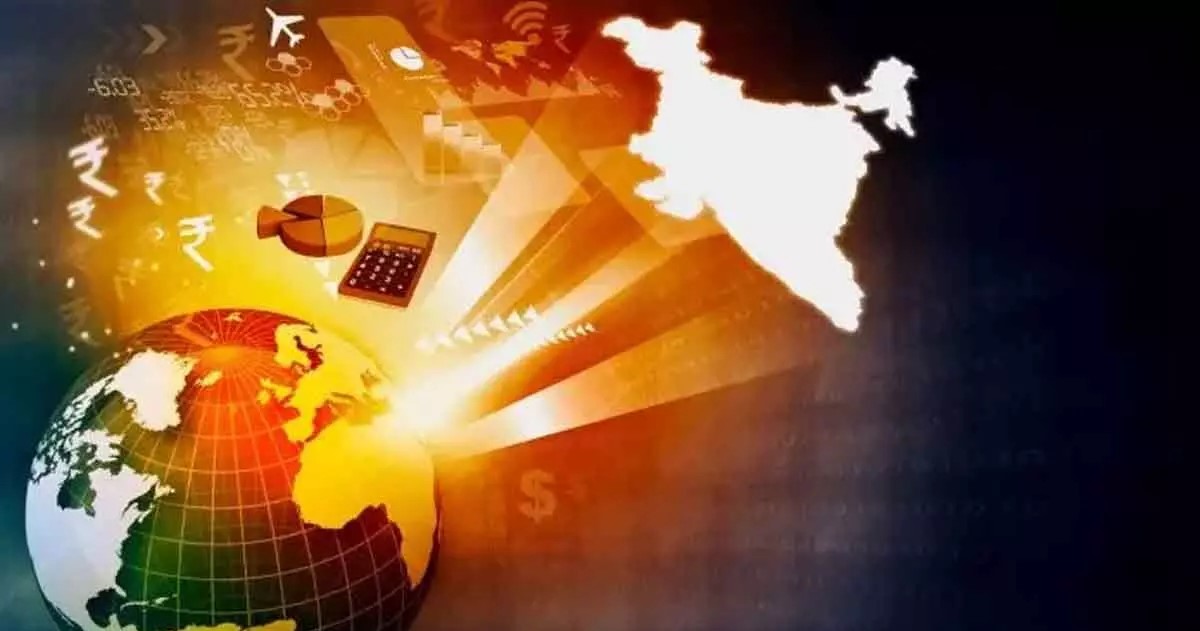The report identifies India, Mexico, China, the Philippines, and France as the top five recipients of remittances in 2022…reports Asian Lite News
The United Nations migration agency reported that India reached a significant milestone in 2022 by receiving more than $111 billion in remittances, becoming the first country to surpass the $100 billion mark.
The International Organisation for Migration (IOM) unveiled its World Migration Report 2024, highlighting India’s exceptional feat among other notable trends in global migration.
In its comprehensive analysis, the report identifies India, Mexico, China, the Philippines, and France as the top five recipients of remittances in 2022. However, India stands out as the leader, far surpassing its counterparts with remittances exceeding USD 111 billion.
“India was well above the rest, receiving more than USD 111 billion, the first country to reach and even surpass the USD 100 billion mark. Mexico was the second-largest remittance recipient in 2022, a position it also held in 2021 after overtaking China, which historically had been the second-biggest recipient after India,” the report said.
This achievement underscores India’s dominance in the global remittance landscape, a position it has maintained consistently over the years. Notably, India was the leading recipient of remittances in 2010, 2015, and 2020, with figures steadily climbing to reach the unprecedented USD 111.22 billion mark in 2022.
The report emphasises the significance of Southern Asia as a key recipient of remittances, with India, Pakistan, and Bangladesh collectively ranking among the top ten recipients globally. The substantial inflow of remittances underscores the vital role of labour migration from the subregion.
“With India estimated to have received more than USD 111 billion in 2022, it is by far the largest recipient of international remittances in the world and the first country to ever reach that figure,” the report said.
Pakistan and Bangladesh also feature prominently as significant recipients of international remittances, ranking sixth and eighth, respectively, with remittances totalling nearly USD 30 billion and USD 21.5 billion in 2022.
However, amid these positive trends, the report sheds light on the challenges faced by migrant workers from Southern Asia. These challenges include financial exploitation, excessive debt due to migration costs, xenophobia, and workplace abuses, underscoring the vulnerabilities inherent in labour migration. The Gulf States emerge as crucial destinations for migrant workers, with the 2022 football World Cup accentuating the region’s reliance on migrant labour. Notably, migrants constitute 88 per cent, nearly 73 and 77 per cent of the national populations, respectively in the United Arab Emirates, Kuwait, and Qatar.
In the United Arab Emirates, migrants represent 88 per cent of the national population. In the United Arab Emirates, Kuwait and Qatar, migrants made up 88 per cent, nearly 73 and 77 per cent of the national populations, respectively.
Most migrants – many of whom come from countries such as India, Egypt, Bangladesh, Ethiopia and Kenya – work in sectors such as construction, hospitality, security, domestic work and retail. India, with a diaspora of approximately 18 million individuals, stands as the origin of the largest number of international migrants globally.
“In 2022, India, Mexico, China, the Philippines, and Egypt were (in descending order) the top five remittance recipient countries, although India was well above the rest, with total inward remittances exceeding USD 111 billion, the first country to reach and even exceed USD 100 billion,” the report noted.
These diasporas are dispersed across countries such as the United Arab Emirates, the United States, and Saudi Arabia, the report noted.
Moreover, India features prominently in international migration corridors, with significant migration flows observed between India and the United Arab Emirates, the United States, Saudi Arabia, and Bangladesh.
Furthermore, the report assesses the impact of the COVID-19 pandemic on migrant workers, particularly in India, where low-skilled migrants faced job losses, wage theft, and insecurity.
“The pandemic has had an overwhelming effect on internal labour migration patterns and has reshaped work in both rural and urban areas. There has been a decline of almost 10 per cent in blue-collar workforce mobility towards cities, which has drastically cut the labour supply for major industries. The official estimate of reverse internal migration is 51.6 per cent for men and 11 per cent for women,” the report said citing experts and official data.
Since 2000, the IOM has been publishing its flagship World Migration Reports biennially, offering comprehensive insights into global migration trends and challenges. (ANI)
ALSO READ: How India Plans to Outpace China?
ALSO READ: Economic cooperation with India vital, says Maldives




